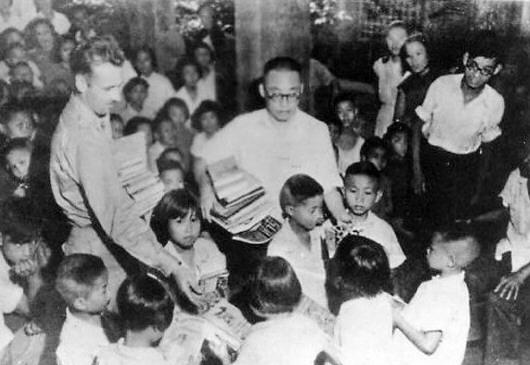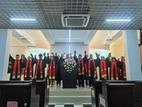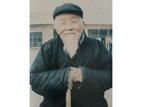Having been a Christian for over a decade, the word I have heard most frequently in the church is "life." Christians are divided into two categories based on their measure of life. However, the church fails to give a clear definition of "life".
Jesus claimed, "The thief comes only to steal and kill and destroy; I have come that they may have life, and have it to the full." (John 10:10) So what is the "life" Jesus talked about ? "Life" in the traditional church refers to "spirituality" accumulated by religious practices, a great distance away from the real life in Jesus' teachings.
Let's explore what life really is by looking at Tao Xingzhi, an influential Christian educator in modern China.
Tao is renowned as the founder of Nanjing Xiaozhuang Normal College and a promotor of civilian education. But he was rarely known as a Christian. His parents were Christians. His family and school education played a major part in his belief.
The China Inland Mission (CIM) established Jesus Church and an affiliated school in his hometown, She County, Anhui. When he was 15, he often helped his mother with her work in the school. The principal Rev. George. W. Gibb, a British missionary, allowed him to be a student there free of charge. After graduation from the school, he enrolled in a preparatory program offered by Huiwen Academy in Nanjing run by the Methodist Episcopal Church in 1909. One year later, the academy was renamed Jinling University and he became one of the first undergraduates in literature. He spent eight years studying in church schools.
Tao began to think seriously about the Christian faith at 17, and converted to Christianity in 1912. At that time, there was a strong Christian atmosphere in Jinling University. The YMCA branch in the university opened twenty Bible study classes each with a maximum of five members. The members led the study in turns, and Tao joined one of them. Rather than a Fundamental "lecturing" class dominated by pure theological doctrines and detached from reality, he and his fellows studied the book Social Principles of Jesus written by Professor Jenks of Cornell University in the United States. The book stressed Jesus' love and the Christian practice of sacrificing oneself for others. He professed faith in Christianity after accepting Jesus' teaching of "loving your neighbor as yourself". The teaching also became the attitude for his behavior and educational undertakings.
He graduated valedictorian from Jinling in 1914. He then went to the United States to study education and learned from American educators like John Dewey, Paul Monroe, and William Kilpatrick. He returned to China in the fall of 1917. He worked in Nanking Higher Normal School and then National Southeastern University, starting his innovative yet tough education career.
Combining western educational thought with a Chinese context, he put forward educational theories named "life means education", "society equals to school", and "teaching/learning with practice". Tao valued education in the countryside, holding that it was essential to make education universal among peasants, the majority of the population in China.
In 1923, he and James Yangchu Yen organized the National Association of Mass Education Movements (MEM) and later promoted MEM across China. Four years later, Tao founded the Xiaozhuang Normal College in Nanjing. In 1932, he set up the Association of Life Education and Shanhai Technology Group, devoting himself to improve people's lives through education.
Is his spirit quality of "love above all" and "holding a heart without asking for anything in return" respected by descendants an expression of Jesus' life?
Christians like Tao Xingzhi, James Yen, and Lin Qiaozhi, were real "pragmatists". Showing no interest in church austerities, they were committed to serving other people with their expertise. They strived to put Jesus' teaching of "loving your neighbour as yourself" into practice, meanwhile impelling social progress. Since the literacy rate was astonishingly low in China, a poor and weak country then, the mass education movement initiated by Tao and Yen had a salutary influence.
Weren't those real idealists and practitioners serving the uncultured and gullible peasants following that example? Wasn't it a reflection of the beauty of the kingdom of heaven and an interpretation of "new life"?
The core of Jesus' teachings lies in the high ethic --- "love your neighbor as yourself" rather than a set of rigid criteria and taboos of religious asceticism. The best presentation of this love is Jesus' crucifixion. He died for us and was also the noblest example.
The Germany theologian Dietrich Bonhoeffer detested hypocrisy and fake piety in religious people, so he proposed that Christians, followers of Christ, should engage in the secular world and serve God and the people in it.
The church should stand "in the center of a community" and Christians should live in the world. The spiritual journeys of Chinese Christians in modern China showed the same opinion as Bonhoeffer 's. Re-interpreting their faith journeys is helpful to reflection on the meaning of the Christian faith. The real life is to walk out of the religious doctrines or the church walls and enter into the world to serve people.
- Translated by Karen Luo











